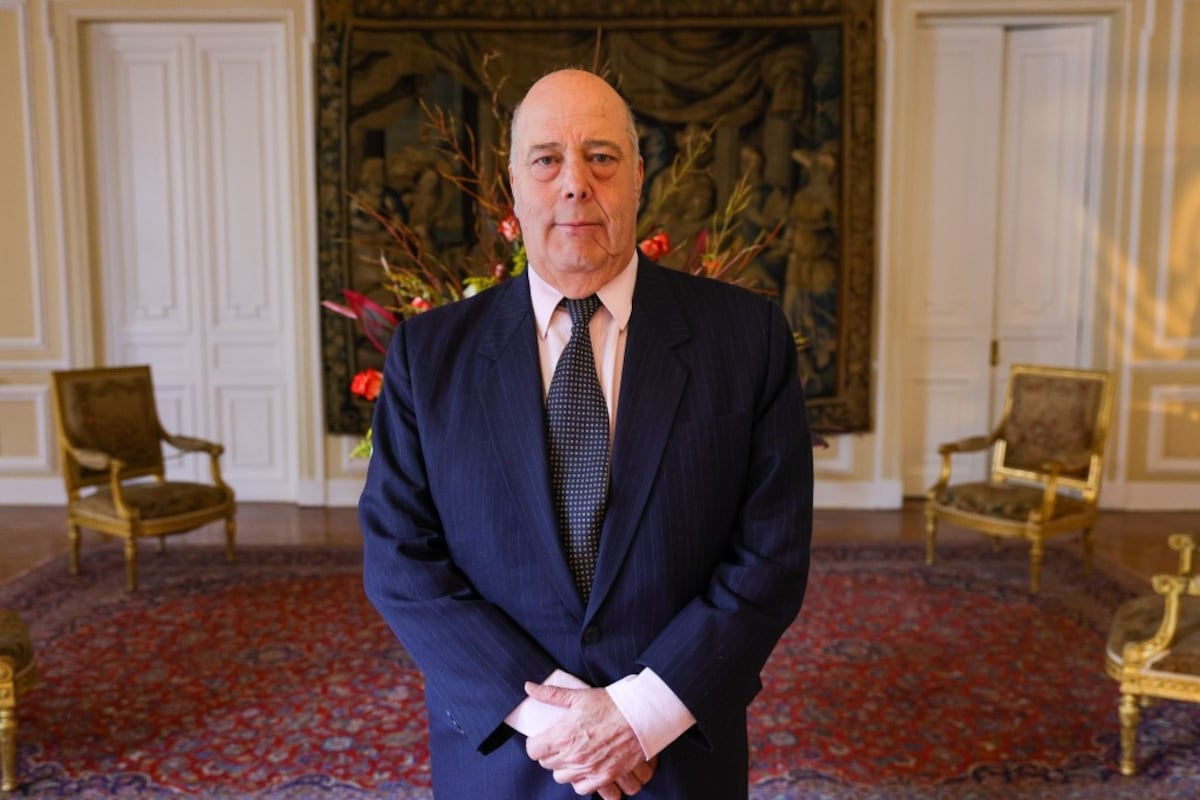The Colombian government has recalled its ambassador to the United States, Daniel García Peña, following the recent clash with Donald Trump’s Republican administration. According to Colombian Foreign Minister Rosa Villavicencio, Gustavo Petro’s government is evaluating the measures it will take after the U.S. president announced on Sunday the cessation of aid to Bogotá for the fight against drug trafficking groups and the imposition, without specifying figures, of new tariffs on imports from Colombia. Trump also called Petro a “lunatic” and accused him, without evidence, of being an “illegal drug leader.” García-Peña is already in Bogotá.
The latest friction between the Colombian and U.S. governments began last week when Trump ordered the bombing of a submarine in the waters of the Caribbean Sea, in another extrajudicial U.S. military operation in the area. While the Republican leader claimed that the vessel was carrying a shipment of drugs from Venezuela, Petro said he suspected that another similar attack, which occurred a few weeks ago, had taken place in Colombian waters and that the crew was made up of Colombian citizens. In addition, one of the survivors of last Thursday’s attack turned out to be Colombian. The other was Ecuadorian. Both were deported to their home countries. Petro said that the U.S. authorities had committed at least one “murder” and had violated sovereignty in territorial waters. “We await explanations from the U.S. government,” he added.
After that exchange, Trump reacted early Sunday by writing on his social media platform that Petro was a “drug trafficking leader”: “[Drug trafficking] has become the biggest business in Colombia, by far, and Petro does nothing to stop it, despite large scale payments and subsidies from the USA that are nothing more than a long term rip off of America. […] As of today, these payments, or any other form of payment, or subsidies, will no longer be made to Colombia.” Later that same Sunday, Trump called Petro the worst president the country has ever had. Thus, the relationship between states that have been close strategic allies for decades returned to a state of uncertainty.
Also on Sunday, Republican Senator Lindsey Graham anticipated that the United States would impose tariffs on Colombia. The statement was confirmed that night by Trump aboard the presidential plane. The news may have a particular impact on the South American country, which is one of the few in Latin America that still considers the United States its largest trading partner. The announcement of the tariffs was accompanied by the suspension of aid for the fight against drug trafficking groups, a form of support that has kept the relationship between the two countries much closer for at least two decades.
This is the latest chapter in a relationship fraught with tension and clashes in recent months. Last January, Trump announced the imposition of tariffs on Colombia shortly after Petro gave the order to prevent a plane carrying deportees from the United States from landing in Bogotá. The friction was overcome hours later, following mediation by the diplomatic services of both countries. Then, in September, the United States decertified Colombia in its fight against drug trafficking. The most recent episode occurred less than a month ago at a pro-Palestinian demonstration, when Petro called on the U.S. army to disobey Trump’s orders, referring to the Republican’s support for Israeli Prime Minister Benjamin Netanyahu in his offensive in the Gaza Strip. The U.S. State Department responded by revoking the Colombian president’s visa.
Sign up for our weekly newsletter to get more English-language news coverage from EL PAÍS USA Edition

